- VMware
- 07 June 2024 at 11:41 UTC
-

When you download a virtual appliance from the Internet (even if it is in OVF format), it is best to use the version adapted for VMware vSphere.
Indeed, although the OVF format is a standard supported by different virtualization solutions, it may happen that certain virtual appliances cannot be imported for certain reasons.
Fortunately, in some cases it is possible to fix the problem using the VMware OVF Tool.
- Cannot import OVF or OVA file with compressed virtual hard disk
- Convert OVF or OVA file with VMware OVF Tool (ovftool) to resolve the issue
- Import the converted OVF or OVA file on VMware vCenter Server (or VCSA)
1. Cannot import OVF or OVA file with compressed virtual hard disk
To deploy a virtual appliance in OVF or OVA format, right-click "Deploy OVF Template".
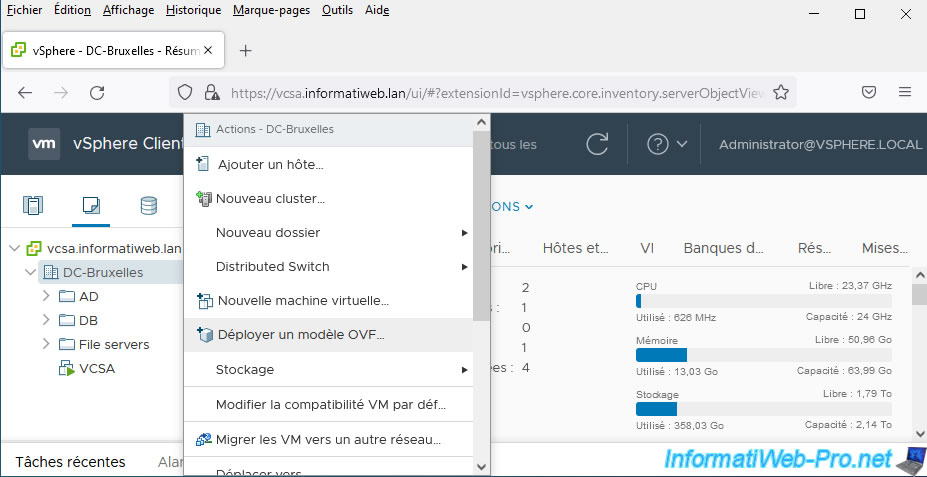
Select "Local file" and select the ".ovf" or ".ova" file from the virtual appliance you want to import.
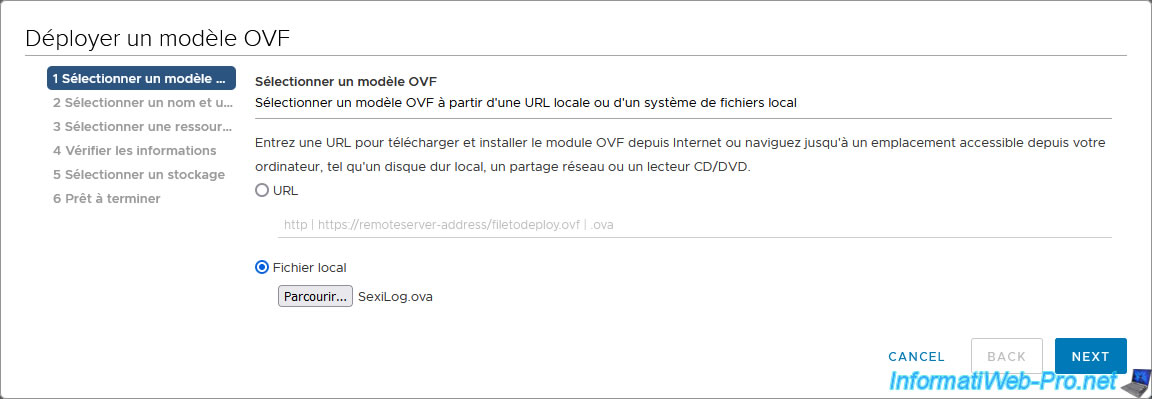
And it may happen that this error appears:
Plain Text
OVF package with compressed disks is currently not supported for OVF import.
![]()
If you open the desired ".ova" file with 7-Zip or any other software allowing you to open archives (zip, rar, ...), you will see that the virtual hard disk located there is indeed compressed.
In this example, SexiLog uses virtual hard disks compressed in ".gz" format (which is an archive format used mainly in Linux).
For the "OVF" format, you will see that the virtual hard disk next to the ".ovf" file has an extension other than ".vmdk".
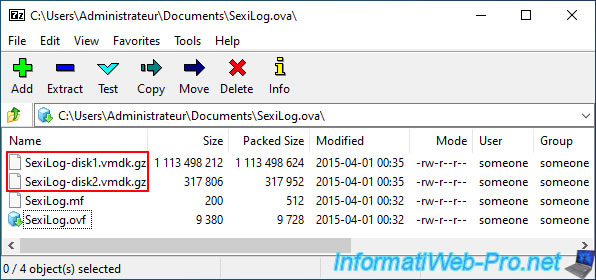
2. Convert OVF or OVA file with VMware OVF Tool (ovftool) to resolve the issue
To resolve this problem and obtain a ".ovf" or ".ova" file compatible with VMware virtualization solutions, simply convert it into the same format using the free tool "VMware OVF Tool (ovftool)".
Once the tool is downloaded, convert the ".ovf" or ".ova" file of the desired virtual appliance like this.
Note: for the OVF format, use the extension ".ovf" for the source and destination instead of ".ova" and specify an empty folder for the destination so that the tool does not overwrite the files it is reading.
Batch
ovftool.exe C:\Users\Administrator\Downloads\SexiLog.ova C:\Users\Administrator\Downloads\SexiLog-new.ova
This will display:
Plain Text
Opening OVA source: C:\Users\Administrator\Downloads\SexiLog.ova The manifest validates Opening OVA target: C:\Users\Administrator\Downloads\SexiLog-new.ova Writing OVA package: C:\Users\Administrator\Downloads\SexiLog-new.ova Disk progress: 22%
Then, once the process is complete, you will see this appear:
Plain Text
Transfer Completed Completed successfully
If you open the ".ova" file again with 7-Zip or similar software, you will see that the virtual hard disk is now in ".vmdk" format and is no longer compressed.
Note: for the OVF format, the ".vmdk" file will be located next to the ".ovf" file.
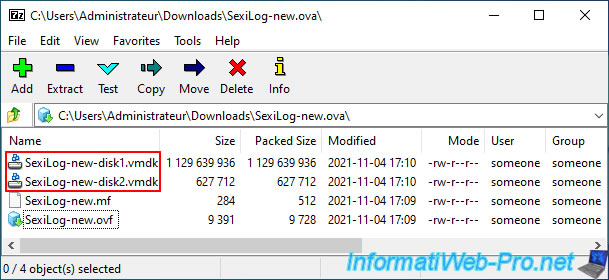
3. Import the converted OVF or OVA file on VMware vCenter Server (or VCSA)
Open the "Deploy OVF Template" wizard of your VMware vCenter Server again and select the newly converted ".ovf" or ".ova" file.
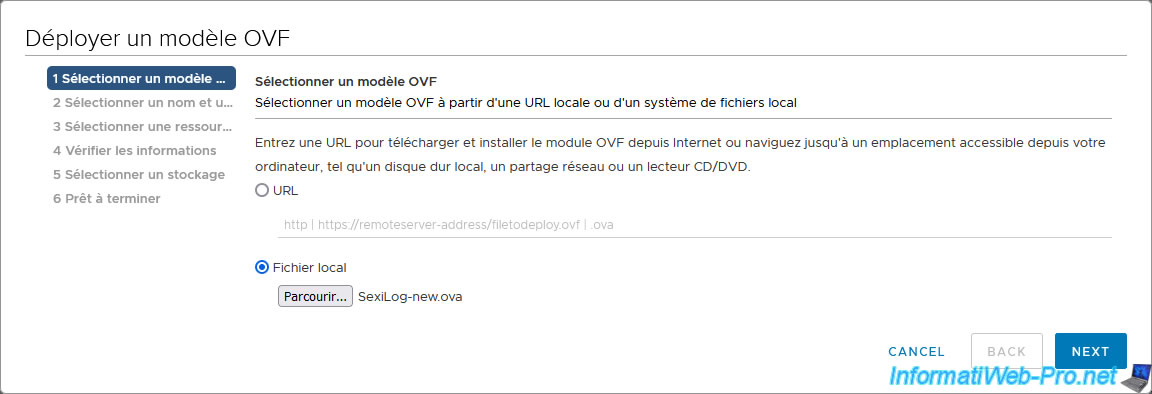
This time, the deployment can begin.
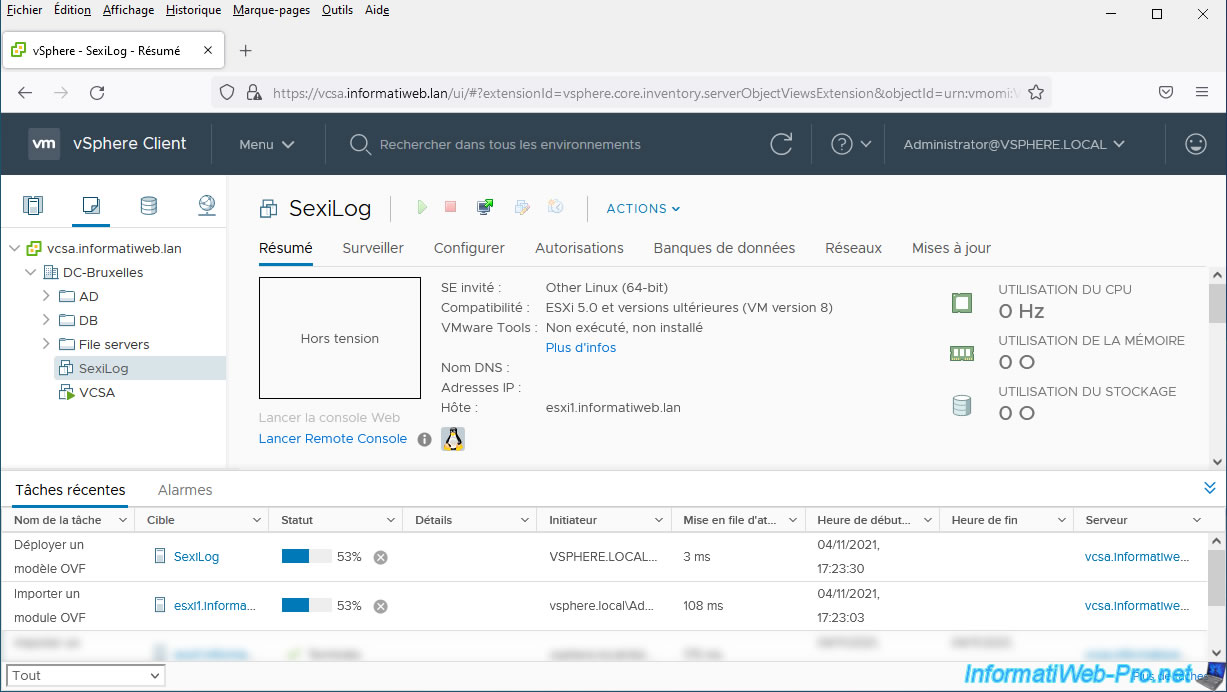
And this deployment of an OVF or OVA model will succeed.
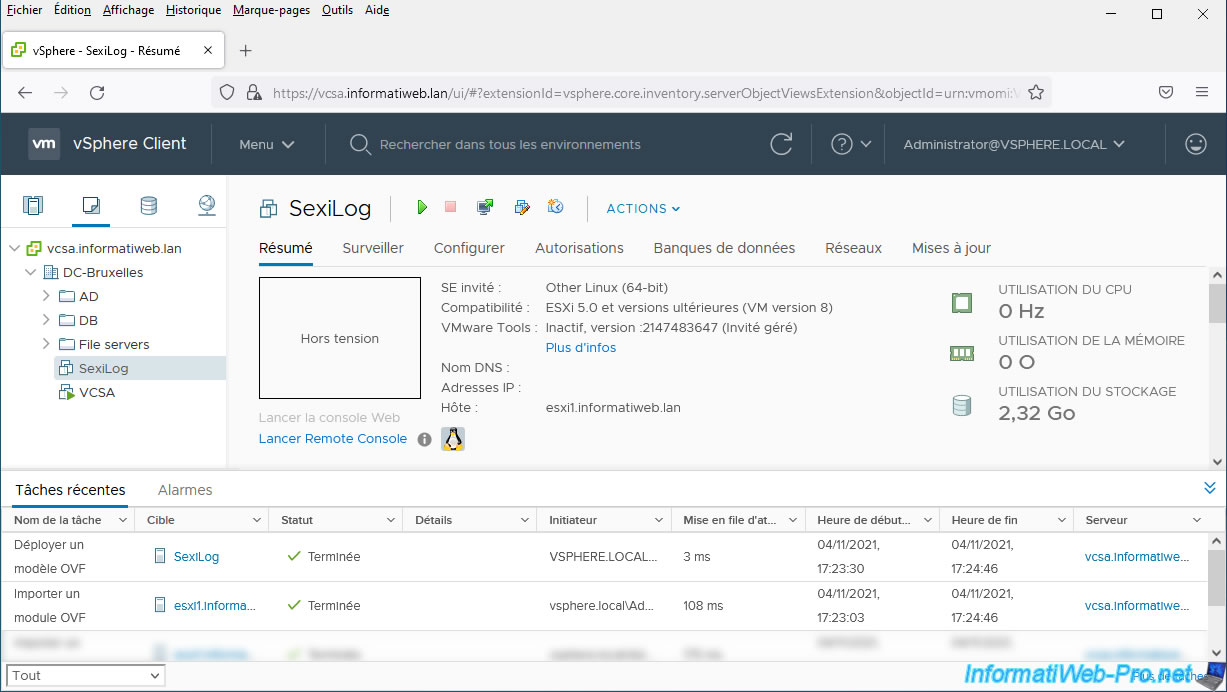
If you try to start your virtual machine, you will see that it works.
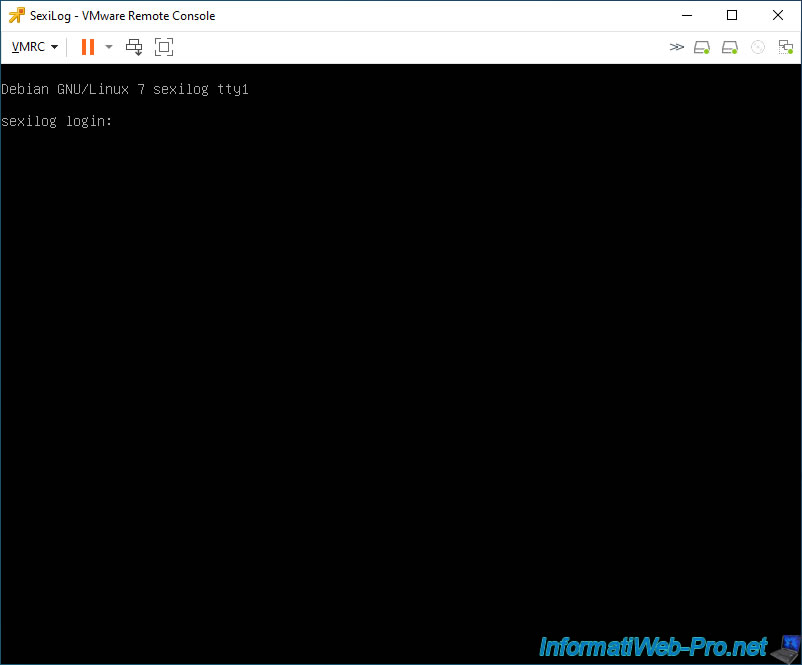
Share this tutorial
To see also
-

VMware 12/20/2024
VMware vSphere 6.7 - Clone vApps
-
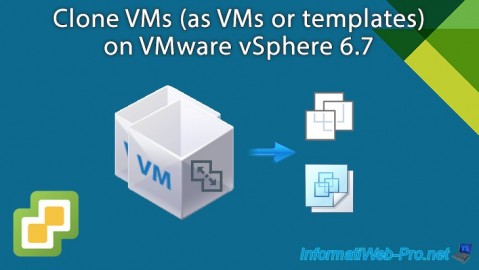
VMware 10/4/2024
VMware vSphere 6.7 - Clone virtual machines
-
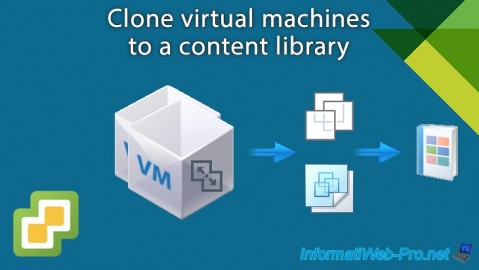
VMware 10/9/2024
VMware vSphere 6.7 - Clone virtual machines to a content library
-
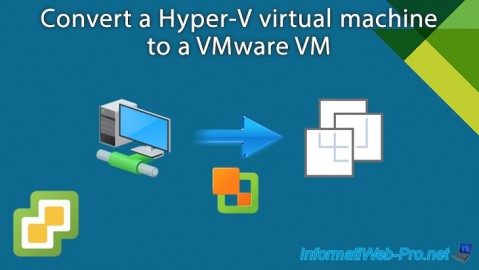
VMware 10/11/2024
VMware vSphere 6.7 - Convert a Hyper-V virtual machine to a VMware VM

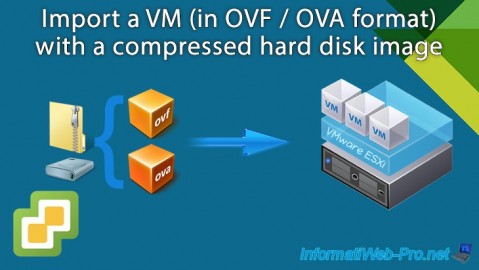
You must be logged in to post a comment